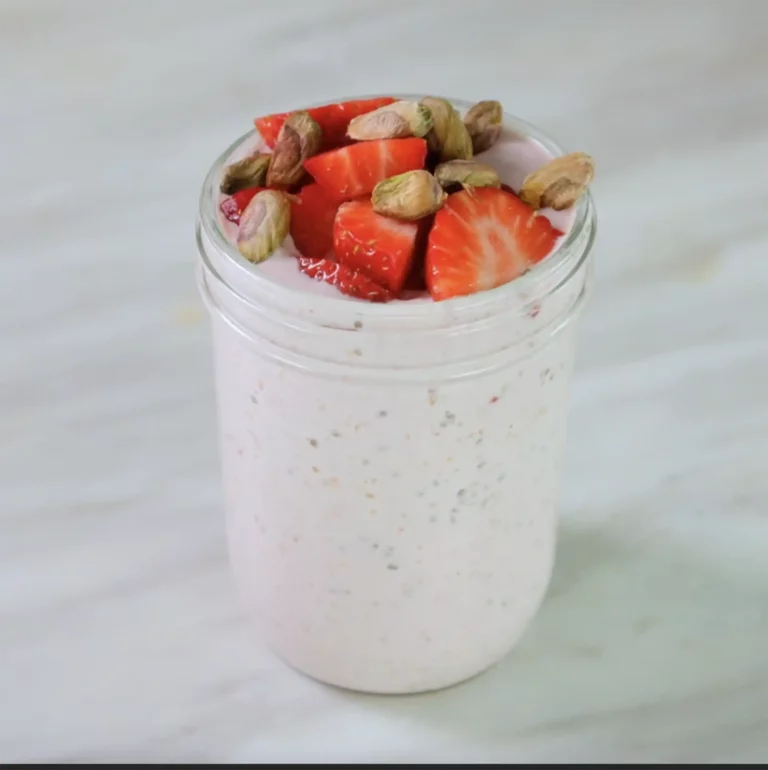If you’ve ever tried to lose weight and found yourself constantly battling hunger, cravings, or energy crashes, you might have wondered: How often should I eat to lose weight?
Here’s the science of hunger, ghrelin, and meal timing that can change everything.
As a weight loss dietitian with over 22 years of experience, I’ve worked with thousands of clients—many of whom had no idea that their meal timing was sabotaging their progress. You could be eating healthy foods, controlling portions, and staying active, but if your eating schedule isn’t aligned with your hunger hormones, it could be working against you.
In this blog and the video above, I’ll explain the science of ghrelin, your hunger hormone, and how to structure your meals to work with your body, not against it. You’ll walk away with four simple, proven principles for eating frequency that support weight loss without starvation or constant willpower.
What Is Ghrelin, and Why Does It Matter for Weight Loss?
Ghrelin is a hormone produced primarily in your stomach. Its job? To tell your brain that it’s time to eat. Ghrelin naturally rises before meals, prompting hunger, and decreases after eating.
But here’s the challenge: ghrelin also spikes in several situations that are very common when people are trying to lose weight:
- When you skip meals or wait too long to eat
- When your meals are too low in calories, protein, or carbs
- When you lose weight (yes—ghrelin actually increases as a biological response to weight loss)
- After exercise—especially in women, whose bodies are biologically wired to preserve energy for reproductive function
This hormonal response is not a sign of weakness—it’s your body’s natural attempt to maintain homeostasis. But if you don’t manage your meal timing strategically, these ghrelin spikes can lead to intense cravings, nighttime eating, or even binge episodes.
That’s why strategic eating frequency is one of the core pillars of my coaching approach.
How Often Should You Eat to Lose Weight?
The answer: Every 3 to 4 hours.
Eating at regular intervals helps blunt ghrelin spikes, stabilize blood sugar, and support energy throughout the day. It’s one of the most powerful (and often underused) tools for weight loss that feels sustainable.
So instead of only focusing on what you eat, start paying attention to when you eat.
My 4 Science-Backed Principles for Eating Frequency
- Eat your first meal within 90 minutes of waking up: Delaying your first meal leads to a rise in ghrelin that can cause overeating later in the day.
- Eat every 3 to 4 hours: This keeps you in a hormonal “sweet spot” where you’re satisfied but not overly full.
- Pair protein and carbs at each main meal: Carbs give you energy, and protein provides satiety. Together, they help regulate blood sugar and keep hunger under control.
- Have your last bite at least 90 minutes before bed: A late-night meal can affect digestion and disrupt sleep—both of which can influence weight loss hormones like leptin, ghrelin, and cortisol.
Sample Eating Schedule (Realistic and Practical)
- 8:00 AM – Breakfast (e.g., egg scramble with veggies + oats)
- 12:00 PM – Lunch (e.g., salmon bowl with farro and greens)
- 3:30 PM – PM Snack (e.g., cottage cheese with berries or a protein bar)
- 7:00 PM – Dinner (e.g., lean protein + roasted vegetables + small starch)
That PM snack? It’s crucial. I call it the “most strategic meal of the day” because it controls how much you eat at dinner and whether you’ll feel the need to snack late at night.
If you need ideas, check out my article on high-protein, low-calorie snacks.
Why Meal Timing Works—Beyond Willpower
Clients who follow these principles often tell me that it’s the first time they’ve lost weight without feeling hungry. That’s because it’s not about cutting calories to extremes—it’s about eating with purpose and rhythm.
Instead of fighting against your natural biology, you start working with it. The result? Fewer cravings, more energy, better sleep, and lasting results.
Final Thoughts
Meal timing isn’t about restriction—it’s about strategy. If you’ve ever felt like dieting only makes you hungrier, this might be the missing piece.
✅ Eat regularly.
✅ Include protein and carbs.
✅ Honor your body’s natural hunger cycles.
And remember—Stop dieting. Start living.





